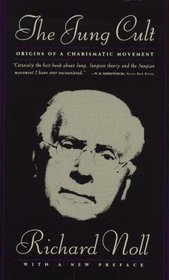Search -
The Jung Cult : Origins of a Charismatic Movement
The Jung Cult Origins of a Charismatic Movement
Author:
In this provocative reassessment of C. G. Jung's thought, Richard Noll boldly argues that such ideas as the "collective unconscious" and the theory of the archetypes come as much from late nineteenth-century occultism, neo-paganism, and social Darwinian teachings as they do from natural science. Noll sees the break with Sigmund Freud in 1912 not... more »
Author:
In this provocative reassessment of C. G. Jung's thought, Richard Noll boldly argues that such ideas as the "collective unconscious" and the theory of the archetypes come as much from late nineteenth-century occultism, neo-paganism, and social Darwinian teachings as they do from natural science. Noll sees the break with Sigmund Freud in 1912 not... more »
ISBN-13: 9780684834238
ISBN-10: 0684834235
Publication Date: 6/5/1997
Pages: 416
Rating: 3
ISBN-10: 0684834235
Publication Date: 6/5/1997
Pages: 416
Rating: 3
3.5 stars, based on 3 ratings
Genres:
- Biographies & Memoirs >> General
- Biographies & Memoirs >> People, A-Z >> ( J ) >> Jung, Carl
- Health, Fitness & Dieting >> Psychology & Counseling >> General
- Health, Fitness & Dieting >> Psychology & Counseling >> History
- Science & Math >> Behavioral Sciences >> Behavioral Psychology
- Engineering & Transportation >> Professional Science >> Behavioral Sciences >> Behavioral Psychology




